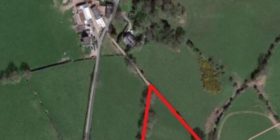Warning – don’t purchase fake electrical items

North Wales Trading Standards authorities have joined together in an attempt to raise people’s awareness of the risks of purchasing counterfeit electrical items.
According to Electrical Safety First the number of counterfeit and sub-standard electrical goods sold online has increased considerably in recent years with the most common fakes being for popular and sought-after items. The number of fake mobile phones seized has risen by more than 50% with other top electrical fakes including hair straighteners, e-cigarette chargers and games.
Worryingly, research by the Electrical Safety First has shown that:
- 24% of people have knowingly bought a counterfeit product
- 21% would consider buying one in order to save money
- 16% do not think counterfeit products could put them at risk
However, these fake goods often contain faulty parts that can cause products to overheat and catch fire. With products left charging overnight or on beds, and sometimes under pillows, a small spark can cause a major fire within minutes.
Kevin Jones, Chair of North Wales Heads of Trading Standards, said: “With the current financial climate, people are looking for bargains to make their money go further. But if a deal looks like it’s too good to be true, then it probably is not only too good to be true but could actually be dangerous and life-threatening to you and your family.
More people now shop online which increases the opportunities for rogue traders to sell you fake products. Our advice is to stick to reputable retailers both on the High Street and online and have a look at Electrical Safety First’s online Safe Shopper’s Guide for advice on shopping safely online.”
Top five checks to avoid purchasing a counterfeit electrical item:
1. Check the reviews: Use reputable online review sites to see what people who have bought products say about them and the retailer and use website checkers set up by companies to confirm you are buying from an approved stockist.
2. Check the seller: Look for the seller’s contact details and ensure there is a full address, not just a PO Box number because just having a .co.uk address doesn’t mean they are based in the UK. Is the seller a well-known name or have you bought from them before?
3. Check the price: If a bargain looks too good to be true, it probably is. Check what others are selling it for and ask the trader why their price is so low.
4. Check the purchase process: Look for websites that allow you to pay safely – these have a padlock symbol on your screen when you are filling in your payment details – but don’t assume safe payment definitely means your purchase is genuine. Also ensure there is a returns or complaints procedure should you be unsatisfied.
5. Check the product: When it arrives, firstly check for damage or loose wires, then check the voltage is 230V, 50Hz (the UK’s usual domestic voltage) and that they are fitted with a three-pin UK plug or charger. Also check the packaging note – does it come with instructions and a guarantee? If you have any suspicions about a product’s safety, or if you think it’s a fake, do not use it.
Spotted something? Got a story? Email News@News.Wales











